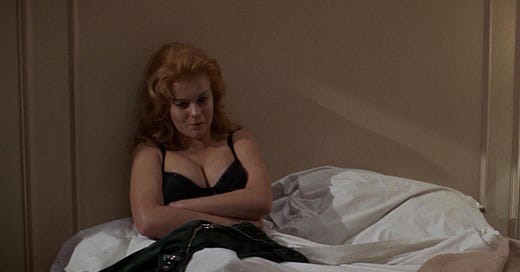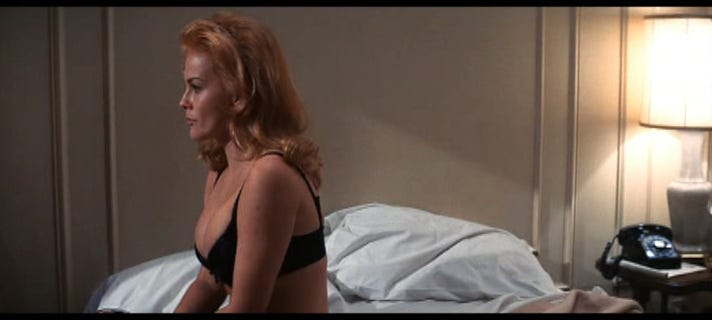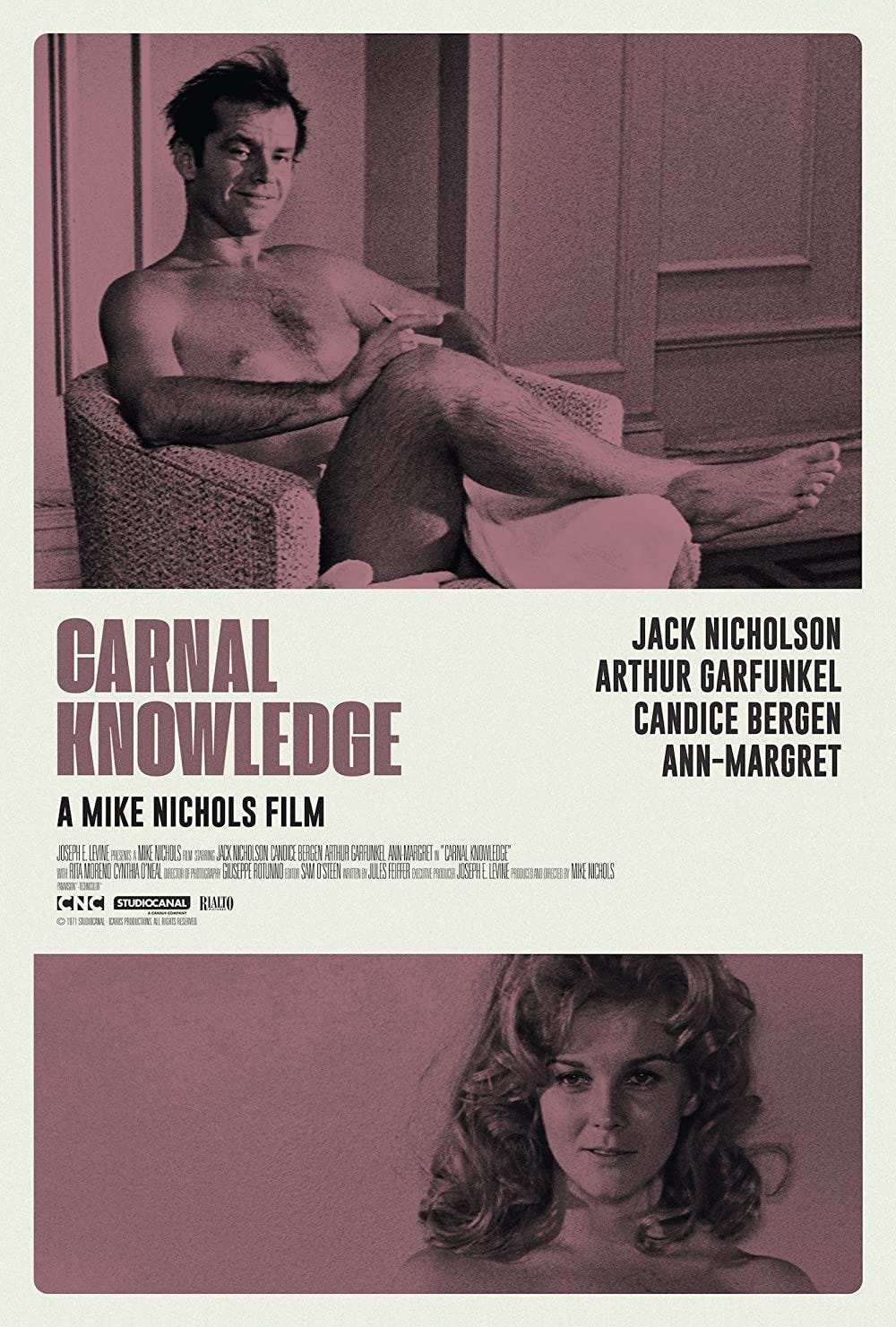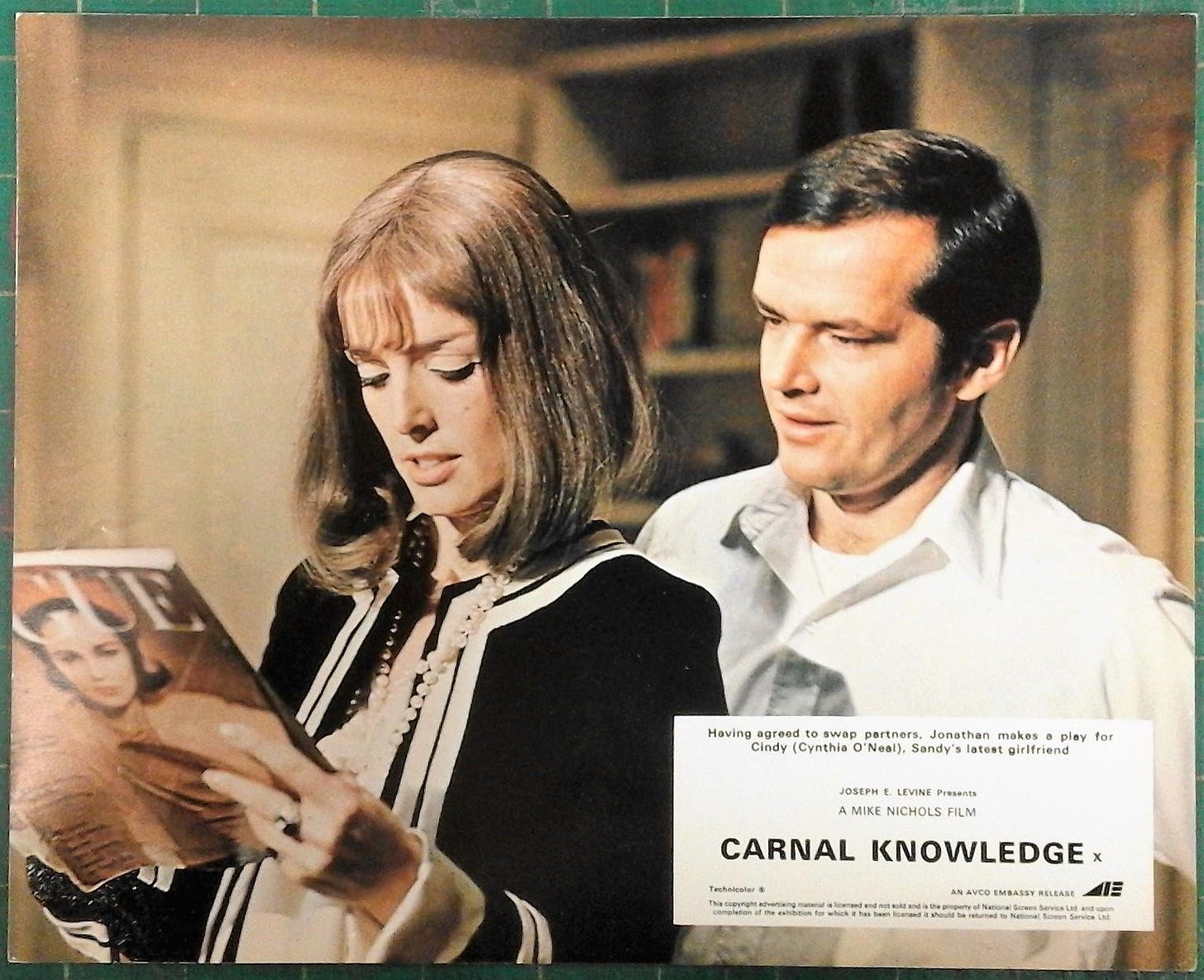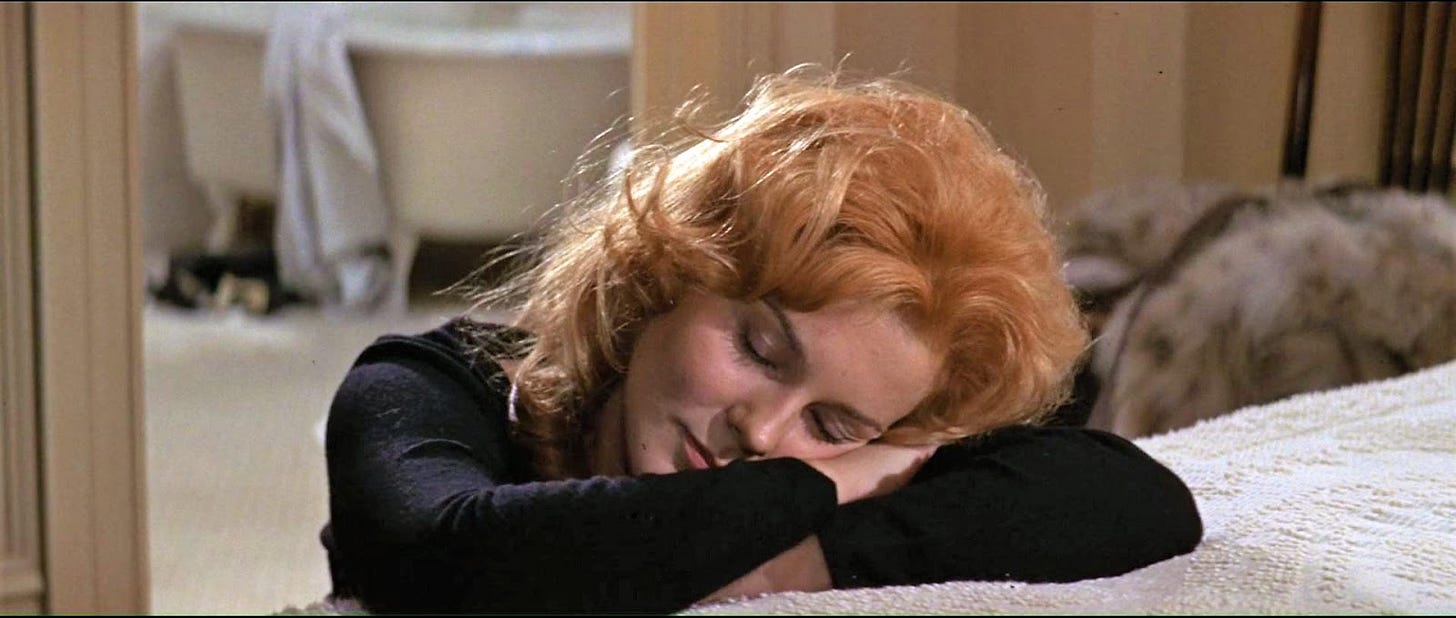Mike Nichols on CARNAL KNOWLEDGE
"People adopted attitudes and anecdotes while waiting in line to see the film, or sitting at home refusing to see the film, because, they had been told, it was ‘too dirty.’"
“So many of the reviews and so much of the commentary surrounding Carnal Knowledge appeared to have been written, composed, thought over while waiting to see the film. People adopted attitudes and anecdotes while waiting in line to see the film, or sitting at home refusing to see the film, because, they had been told, it was ‘too dirty.’ Or Mike Nichols had flamed out. So sad.
“Say or think whatever you wish about me as a director, but I thought Jules [Feiffer] had written a blistering and truthful examination of male power and female conformity. I don’t think Jules or I felt we could take a stance other than that of bewildered men, and both of us failed to understand how and why we respond, behave, age. Is it cultural or glandular? I do not know, but I thought a study of two men flailing about and trying to find love—or what had been defined for them as love—was a legitimate topic for a film. Jules had wanted to see it on the stage, but I wanted it on film. I wanted close-ups; I wanted tight spaces in which lives were falling apart, and you could almost smell sweat and Arpege and Hask hair oil and hairspray and the metallic scent given off by old trays from which TV dinners had been eaten. I wanted—and I got—full garbage cans on the set of that film.
“I can’t talk about Carnal Knowledge without specifically talking about Jack [Nicholson] and Ann-Margret. Both of them gave so beautifully on that film. It was like war service, military duty, and not, I hope, because I was so difficult, but because they were both exposing far too much of themselves and their characters. Everyone was wonderful: I get furious when people would say Cyn [O’Neal] only had to show up with that hairdo to be effective. The possession of space and air is acting, and it is very difficult to find actors who can mold a character with nothing but air and lighting surrounding them. To drop a name: I spoke to Alfred Hitchcock one time, and I praised the extraordinary work done by Janet Leigh in Psycho. ‘But she’s only driving and thinking!’ morons bleat. Well, yes, but the very baroque and heavy machinery of that film rests on her shoulders, and the moral journey we take with her as she drives toward both her death and some sense of redemption is shattering, and almost always dismissed as not really being acting. Hitchcock smiled and said, ‘Janet is great. She was the mule of that film, smuggling everything in and then dropping us off at the hotel.’ Dine on that story for months.
“No one took Ann-Margret seriously as an actress. She’s a performer, they would say, and you just don’t entrust her to fill a character. Well, I don’t agree, and not just about Ann-Margret. I wanted her history, her insecurity in that film, and she gave it freely, and then she invested all of her own fears—aging, gravity—that could affect a woman who just wants—chillingly and sadly—to be loved, to be married, to run a home.
“Jack was already being seen and discussed as the great actor he was and has remained, and he devoted himself to the film and to Ann-Margret as her character would have liked him to be as her lover and husband. No one on earth gives as much as Jack. No one.
“A lot of shit arose when Elizabeth [Taylor] was cast in Who’s Afraid of Virginia Woolf? It began with doubts of her talent and the ludicrousness of casting her in a role for which she was too young by two decades. I chose to count her age from the date of her first appearance before a camera, the days on sets, in editing and looping, in promotion. By my estimation Elizabeth was approaching eighty, and she had knowledge we would need.
“Elizabeth can hear, high up in the eaves of a set, a sound that lets her know that a bulb is not situated correctly. The lights go up, and they make a sound. ‘Sounds wrong, darling,’ she would say. Garson Kanin told a story about Carole Lombard stopping a scene because there was a miniscule cool spot on her cheek, which meant a bulb was blown. I could top that: Elizabeth would let me know that I wasn’t lighting Sandy [Dennis] properly, and show me how to do it. This never upset Haskell [Wexler] because she was always right. In the sweetest way she would say to me, quietly, that the camera was not properly situated for what I wanted. And I knew nothing, I assure you. ‘Which lens?’ she would ask, and she was always right when she would quickly point to the right one, which was not the one I would have chosen.
“I did not paste a performance on Elizabeth. When she emerged as effective and correct as Martha, I was unfairly credited with creating a performance from editing magic, judicious angles, coaching. Entirely incorrect. Coaching, by the way, is bullshit. One either has the ability or they do not. Elizabeth did. She proved it. Do I think she discussed the role and the play with Richard [Burton]? Yes, I do, and smart of her to do so, but no one, not even Richard, could turn anyone into Martha or any other character.
"I find myself terribly pleased with a lot of Carnal Knowledge, and my name is on it as its director, but almost everyone in that cast served as a director, and they all taught me so much.
"I was delighted with the success Ann-Margret had with the film, and angered when certain critics implied, as they had with Elizabeth, that I had pasted a performance on them, colluded with the editors to craft a performance. Vicious shit. Ignorant shit. The worst was, of course, John Simon, a critic who was not only vicious but almost always incorrect, particularly when it concerned the facts of film making. ...Ann-Margret gave of herself tremendously in that part. She is a very intuitive and gifted actress, and Simon cornered me at a party once and congratulated me on 'working around the tits.' What a vile man.
“I mean no offense to Cloris Leachman or to Ellen Burstyn or to Barbara Harris or to Margaret Leighton, the four women who competed with Ann-Margret for the Oscar as Supporting Actress. That was a rich category, but Ann-Margret was robbed. I rarely, if ever, indulge in those conversations, but watch them, if you must, on a cold day, and tell me who had a higher degree of difficulty and not only met it, but crushed it.”
John Simon died after suffering a stroke at a dinner theatre. I regret that Mike had died and I could not convey this news.
When Kathleen Turner, slurring her words, obese, scratching beneath her tits, and manically licking her lips, appeared as Martha in a stage revival of Who’s Afraid of Virginia Woolf? and later revealed her pleasure in her brilliance and in “improving” the parts of both Maggie the Cat in Tennessee Williams’ Cat on a Hot Tin Roof and Martha, after they were “ruined” by Elizabeth Taylor, I was able to call Mike Nichols to discuss. Mr. Nichols’ comments were brilliant—and unprintable.
Interview with Mike Nichols, conducted by James Grissom, 1992.
